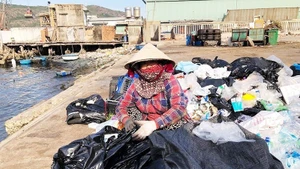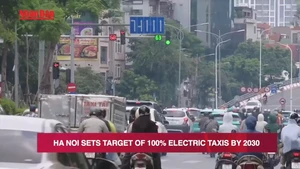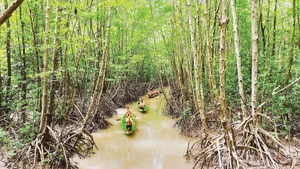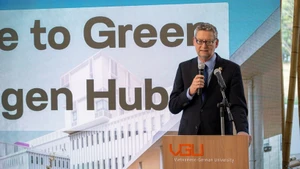At a recent talk show titled “The Role of Green Consumption in Promoting Sustainable Development”, co-organised by Tuoi Tre (Youth) Newspaper, the Ministry of Agriculture and Environment, and the Viet Nam Packaging Recycling Organisation (PRO Viet Nam), enterprises and experts emphasised the urgent need for collective action. They agreed that consumers are emerging as a vital driving force in the green transformation of businesses.
Green transformation: An inevitable trend
Experts assert that to fulfil Viet Nam’s commitment to achieving net-zero emissions by 2050 and to pursue sustainable growth, strong synergy is required across policy frameworks, proactive enterprise transitions, and behavioural shifts within communities and among consumers. Consumers, in particular, are becoming a critical catalyst in the green transformation of enterprises.
Associate Professor Dr Nguyen Dinh Tho, Deputy Director of the Institute of Strategy and Policy on Agriculture and Environment, noted that extreme weather events are heightening awareness among communities and businesses alike. This is compelling society to adopt a new mindset: collective action is essential to protect the environment and reduce emissions, or the future will face grave risks.

Communities are clearly shifting towards greener behaviours, while enterprises are under increasing pressure to adopt sustainable production practices. This is not merely a global trend but also a strategic direction for Viet Nam, with active engagement from young people and the business sector.
In recent years, the policy framework for environmental protection and circular economy development has steadily improved. Numerous legal provisions have established a clear legal foundation for the circular economy model, institutionalising the shift towards low-carbon economic development.
These include regulations on Extended Producer Responsibility (EPR), which require businesses to recover and recycle packaging and products after use. Simultaneously, green finance mechanisms—such as green credit, green bonds, and the roadmap for establishing a carbon market—are gradually taking shape, with enterprises beginning to implement and comply with them rigorously.
In the context of deep international integration, institutional reform is not only a driver of domestic growth but also a prerequisite for meeting increasingly stringent international standards.
Businesses must embrace robust transformation, treating green development as a long-term strategic imperative rather than a matter of corporate social responsibility.
The European Union’s Carbon Border Adjustment Mechanism (CBAM), which applies to certain key commodity groups, presents a significant challenge for Vietnamese enterprises. Failure to meet emissions reduction targets, ensure transparent reporting, and adopt green production practices could limit access to export markets and directly affect growth rates.
In this context, businesses must embrace robust transformation, treating green development as a long-term strategic imperative rather than a matter of corporate social responsibility. Leading models have demonstrated “dual benefits”: improved operational efficiency and cost savings through technological innovation and energy reuse, alongside enhanced product competitiveness and brand reputation.
Closing the circular loop through consumer behaviour
Alongside enterprises, communities—particularly consumers—play a pivotal role in closing the product lifecycle. The trend of green consumption is gaining momentum, especially among urban youth. Consumers are increasingly attentive to environmental factors, product value chains, and transparency of information.
However, a significant gap remains between awareness and action.
Barriers such as the higher cost of green products, lack of convenience, and concerns about the quality of recycled goods continue to hinder widespread adoption. This underscores the need for stronger communication, greater transparency, and increased consumer trust in environmentally friendly products.

Consumers influence both ends of the circular loop. Demand for sustainable packaging drives innovation among producers, while source-separation behaviour determines whether post-use packaging becomes a recyclable resource or an environmental burden.
Viet Nam is pursuing a long-term vision to 2050: to build a green, circular economy in harmony with nature, reduce the impacts of natural disasters, and foster a sustainably prosperous society.
According to Associate Professor Dr Nguyen Dinh Tho, achieving this vision requires collaboration across all sectors of society. Every individual and organisation has a role to play in reducing emissions and protecting forests, water sources, and natural ecosystems. When responsibility is shared, the burden of climate change and biodiversity loss can be eased.
The Viet Nam Packaging Recycling Organisation (PRO Viet Nam) is a pioneering non-profit initiative. Since its founding in 2019 with nine members, PRO Viet Nam has grown to include 30 major companies and corporations nationwide. Its mission is to enhance sustainable packaging recycling.
Acting as a bridge within the industry, PRO Viet Nam leverages economies of scale, shares expertise, and supports businesses in optimising costs to meet their Extended Producer Responsibility (EPR) obligations.
















